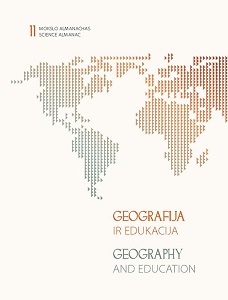DŽEROMAS SEIMŪRAS BRUNERIS IR DŽONAS DIUJIS: PAŽINIMO IR PATYRIMO JUNGTYS
JEROME SEYMOUR BRUNER AND JOHN DEWEY: CONNECTIONS OF COGNITION AND EXPERIENCE
Author(s): Šarūnas GerulaitisSubject(s): Education, School education, Inclusive Education / Inclusion, Sociology of Education, Philosophy of Education
Published by: Lietuvos geografų draugija
Keywords: Jerome Seymour Bruner; John Dewey; active learning; experiential learning; inclusive education;
Summary/Abstract: The essay analyses Jerome Seymour Bruner’s and John Dewey’s approach to the environment in which the educational process takes place, comparing the classical approaches to education of the constructivist philosophical trends of positivism and pragmatism. The scholars examined grew up and worked within the same American educational system, resisting the biheuristic educational philosophy of the time, seeking new ideas such as learning from experience, learning through practice, establishing a direction of meaningful activity towards learning; reforming the educational system of the time. In the context of today’s relevance - inclusive education - J.S. Bruner’s ideas - active student learning, spiral learning and pastolisation are relevant and meaningful. Dewey’s school - open, democratic, allowing everyone to flourish and grow - needs to be ‘alive’, so that students learn to solve problems of their own and of society in general, which arise within and beyond the schoo’s premises. This is the point at which Luksienė’s statement about how we need to create an open person and, through him, an open culture, ties in. The openness of culture and the openness of the person is inseparable from democracy (Luksienė, 2013).
Journal: Geografija ir edukacija: mokslo almanachas
- Issue Year: 11/2023
- Issue No: -
- Page Range: 81-87
- Page Count: 7
- Language: Lithuanian

